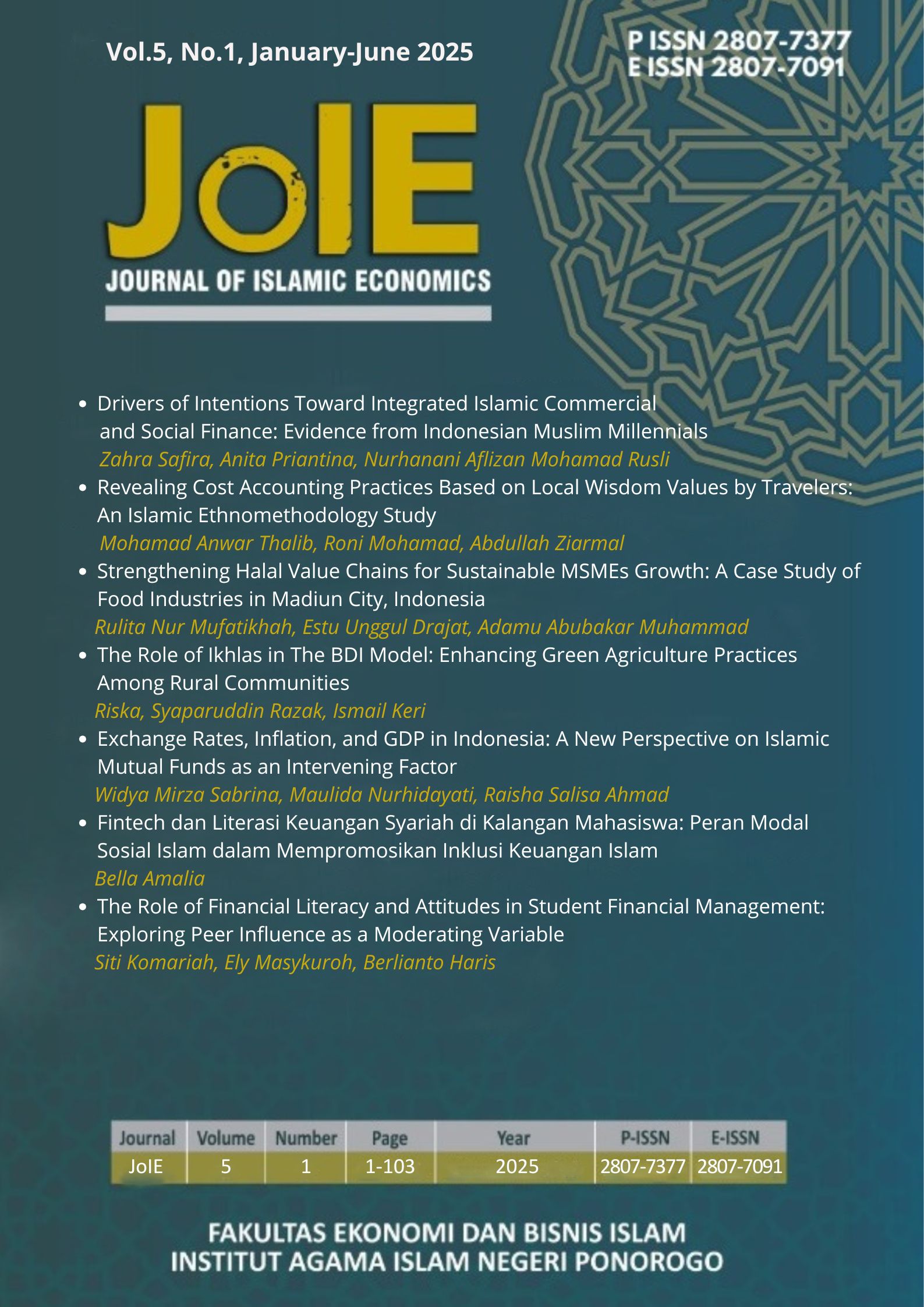Drivers of Intentions Toward Integrated Islamic Commercial and Social Finance: Evidence from Indonesian Muslim Millennials
DOI:
https://doi.org/10.21154/joie.v5i1.10221Keywords:
Intention, integration, Islamic commercial and social finance, partial least squareAbstract
Introduction: Islamic financial concept enables an integration between commercial and social finance. It has a substantial benefit for the economy. This study aims to investigate the factors that influence Muslim millenials intention to contribute toward integrated Islamic commercial and social finance (IICSF), especially in Indonesia case. Research Methods: Using modified TPB framework, primary data is collected from respondents located in Jakarta, Bogor, Depok, Tangerang, and Bekasi. Partial Least Square-Structured Equation Modelling (PLS-SEM) is utilized to analyze the data. Results: The result indicates that knowledge, religiosity, attitude, subjective norms, and perceived behavioral control have significant impact on Muslim millennials’ intention to contribute toward IICSF. Meanwhile, relative advantage is found to be insignificant. Conclusion: To boost the practice and implementation of IICSF, it is important to raise public knowledge, religiosity, attitude, and to increase education so society are well educated about the products. This study contributes to the limited research on integrated Islamic finance from a consumer perspective, particularly focusing on the behavioral intentions of Muslim millennials in Indonesia.
Downloads
Published
Issue
Section
License
Copyright (c) 2025 Zahra Safira, Anita Priantina, Nurhanani Aflizan Mohamad Rusli

This work is licensed under a Creative Commons Attribution 4.0 International License.
JoIE: Journal of Islamic Economics allows the author(s) to hold the copyright without restrictions and allow the author(s) to retain publishing rights without restrictions, also the owner of the commercial rights to the article is the author.


















